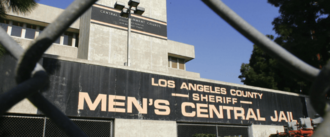- Featured
- Afropunk Army
- Community Control
- Confederate Symbols
- Cop Watch
- Corporate Accountability
- Criminal Justice Policy
- Drop/Bring Charges
- Economic Justice
- Education
- Employment Discrimination
- End The War on Black People
- Environmental Justice
- For-Profit Colleges/Universities
- Gulf Coast
- Housing Rights
- Immigration
- Invest-Divest
- Media Accountability
- Music Industry
- No Guns in Schools
- Open Internet
- Police Accountability
- Political Power
- Pop Culture
- Private Prisons
- Reparations
- Reproductive Justice
- Right Wing Racism
- School-to-Prison Pipeline
- Sports
- Voting Rights
- Wrongful Imprisonment
- More
-
Seize the Masks-- Save Our Nurses & CNA's!Our frontline healthcare providers will within weeks be forced to choose between saving their own lives and doing their jobs, because of the government's failure to prepare for this pandemic by buying enough equipment--especially masks. The vast majority of these jobs are held by women, people of color, or recent immigrants. I know I am not the only mother who cannot sleep nights worrying about a loved one who is a health care worker. In my home city of new Haven, our first Covid-19 casualty was of course a Black man who worked at a health care facility serving the community. As a result of the bans on essential travel, I do not know when I will again see my own daughter, who is putting herself through nursing school while caring for patients in Boston. I pray she will not save others only to end up sick herself.189 of 200 SignaturesCreated by Jen Vickery
-
#WeStandWithYamicheVerbal abuse of Black women by the current president has reached epic proportions with professional Black women asking legitimate journalistic questions being referred to as "nasty" and "threatening", their competence constantly impugned in a familiar misogynistic pattern geared to silencing them. The characterizing of Black women as "threatening" or or their questions as "nasty" utilizes popular racist and sexist stereotypes of Black women which are meant to question their professionalism in the presence of presidential incompetence. When Trump uses racist, sexist intimidation to reinforce a hierarchy that assumes Black women should not even be present in the room, we can be sure that others will follow suit. We must fight against the barriers to access that Black women have fought and continue to fight so hard to win. We call on the media to take a position against this daily abuse which not only berates journalists like April Ryan, Abby Phillip and Yamiche Alcindor but has implications for how Black women are seen and treated in other workplace, public and private situations and how all journalists are disrespected on a daily basis. We must defend the Black journalists who are willing to put themselves on the line to press for the truth. Sign now to show #WeStandWithYamiche.3,044 of 4,000 SignaturesCreated by Black Women Lead
-
#Decarcerate NE: Prevent a COVID-19 Outbreak in Nebraska Jails & PrisonsIncarcerated and detained Nebraskans are facing a high risk for a COVID-19 outbreak. Not only are these facilities operating above 150% capacity, but people live in unsanitary spaces. It is not a question of if COVID-19 will enter these facilities, but when. “It doesn’t matter what crime you committed. This pandemic is affecting everyone,” Dominique Morgan, Executive Director of Black and Pink explains, “If you were selling a little bit of dope, it shouldn’t be a death sentence. But that’s what COVID-19 is. These people inside can’t choose to social distance. They can’t say, ‘No, you can’t touch my body and shake me down.’ They don’t get to decide who comes into their institutions. They have no autonomy over their body. Imagine going through this pandemic and the fear we have as a community. Now imagine having no power. Being Black. Being trans. You have to have empathy at this time.” Pain and violence are a virus themselves. Not only do they spread without urgent corrective action, but punishment replicates pain and violence. We have space for meeting people where they are at and for healing at home in our communities. We see them everyday. Maybe we give a smile or a nod. Put people in cages, isolated and separated from communities, and we lose their humanity. We forget they too are worthy of respect and love and life. They too have inherent value. We recognize their value. That’s why Black and Pink, along with 13 other Nebraska community organizations, joined in solidarity to demand clear and specific actions for Governor Ricketts and NDCS Director Frakes to immediately implement and reduce the impact of COVID-19 including: 1. Reducing the dangerous overcrowding conditions in NDCS facilities, including the immediate release of individuals at high risk of contracting COVID-19 2. Issuing a publicly accessible Crisis Management Plan, including accountability measures for handling an outbreak 3. Prioritizing the health and safety of currently incarcerated individuals by ensuring appropriate access to medication, prohibiting use of punitive processes, and prioritizing COVID-19 treatment at hospital settings NOT facility medical units/infirmaries. The full text of the letter can be found here: https://drive.google.com/file/d/1J0sAfQIF57WJwJ5gHw__855VSa_X0uJ9/view?usp=sharing Join us in demanding that state officials release their COVID-19 emergency response plan and share how they plan to protect the health of incarcerated Nebraskans during this health crisis! #DecarcerateNE #HealthNotHell HELP US AMPLIFY: Share this petition on Twitter (copy text): Join me and sign this petition to demand that @GovRicketts and @necorrections Director Frakes release their COVID-19 emergency response plan and take immediate action to protect incarcerated people! #DecarcerateNE #HealthNotHell https://bit.ly/2Uy7TA4 Share this petition on Facebook (copy text): I refuse to wait silently while state officials endanger the health and lives of incarcerated Nebraskans. Join me today and sign this petition to demand that Governor Ricketts and NDCS Director Frakes release their COVID-19 emergency response plan and take immediate action to protect incarcerated people! #DecarcerateNE #HealthNotHell https://bit.ly/2Uy7TA4478 of 500 SignaturesCreated by J. Petersen
-
Tell FL Governor Ron DeSantis to freeze Rent, Mortgage, Bills & Tolls during Corona Virus.Our goal for this petition is to help all of Floridians during the Corona Virus outbreak who are facing hardship such as immobilization due to hospitalization, sickness, being laid off without severance package or permitted to use PTO. The businesses receive government relief before its people- leaving people vulnerable. It'll take weeks even months before our constituents receive the stimulus. The stimulus distribution will only help cover human necessities (replenish food, medicine, gloves, masks, gas, etc) not to pay rent, mortgage, bills, and tolls.1,278 of 2,000 SignaturesCreated by Joanis Duran
-
Governor of Kentucky Andy Beshear Please Freeze Rent, Mortgages, Car Payments and UtilitiesIn the past 2 weeks thousands of residences in Kentucky have been laid off do to their employer closing and most won’t be able to pay bills including rent, mortgages, car payments or basic utilities. College students have been forced go home because they don’t have a roof over their head during these hard times! We need our governor more than ever to stand with us and help us get through this. Thank you!31,113 of 35,000 SignaturesCreated by People Of Kentucky
-
DECARCERATE ARIZONA: CRIMINALIZATION AND INCARCERATION ARE NOT PUBLIC HEALTHCARE SOLUTIONS!Thousands of incarcerated people being caged together in small spaces with no real options for quarantine are far more susceptible to the COVID-19 pandemic than most other populations. Due to substandard medical care, incarcerated people suffer disproportionately from chronic health conditions that make them more vulnerable to the virus which will have disastrous effects. COVID-19 outbreaks in prisons and jails are a risk to the entire community. To slow the cycle of people in and out of jail, we must drastically reduce jail and detention center admissions. Less people in jails and detention centers is a definite way to prevent the spread of disease. Public officials must reduce the prison, jail, and detention center's population size to ensure cells are not shared, there are sufficient medical beds for anyone who may need one, and adequate numbers of prison staff to ensure safety for staff, those incarcerated, and visitors. And for those currently in prison, the only public health solution is RELEASE! Arizona cannot afford a failed response to COVID-19!150 of 200 SignaturesCreated by Mass Liberation Arizona

-
Kym Worthy-COVID-19 DemandsThe decarceral guidelines below are designed to prevent three things: social spreading, jail “churn,” and the deaths of vulnerable people. Social Spreading In order to prevent the rapid growth of COVID-19 from overburdening our health-care system and claiming lives, both those in secure facilities and the people who work in them, it is the responsibility of decision-makers at every level to prevent and contain the spread of the virus by taking action to promote the most effective strategy in abating the pandemic: social distancing in order to slow “community spread.” The Particular Issue of Jail and Prison “Churn” Jails and Prisons combine the worst aspects of a cruise ship and a large public gathering and, thus, can be the perfect breeding ground for the spread of COVID-19. People are constantly booked into and out of jail and prison facilities and each night guards, vendors, and other jail staff are going home while others are coming in- which results in a massive turnover. For example, more than half of the people in jail are only in there for two to three days. Further, enclosed structures like jails can cause COVID-19 to spread like wildfire and introducing just one person with it can lead to it impacting not just everyone inside the jail or prison but anyone leaving the facility—whether a person who is released or staff returning back to their homes— who then interact with their communities. Preventive Measures Cannot Be Taken in Jails and Prisons. Experts recommend that to protect the people most vulnerable from death or serious illness from COVID-19 that they are appropriately separated through social distancing. Yet separating sick people from well people to prevent the disease from spreading can be nearly impossible in prison due to logistical considerations.1,776 of 2,000 SignaturesCreated by Nicholas Buckingham
-
Humanity Not Cages: Demand a Just and Humane Response to COVID-19It is not a matter of if but when the coronavirus will enter prisons and jails, according to health experts. The consequences of that eventuality will be devastating. COVID-19 outbreaks in prisons and jails will spread “like wildfire” due to close quarters, unsanitary conditions, a population that is more vulnerable to COVID-19, and the large number of people that cycle through the criminal justice system. The risk extends far beyond those who are incarcerated. COVID-19 outbreaks in jails and prisons threaten the larger public, as hundreds of thousands of individuals churn through jails on a daily basis and correctional, medical and other staff interact with the incarcerated population and circulate back into communities. With 2.3 million people in the United States in prison or jail on any given day, an outbreak in these facilities poses a threat to the entire country. If federal, state, and local officials take swift action, they can not only prevent the spread of COVID-19 inside prisons, jails, and detention centers and ensure the safety and wellness of our loved ones behind cages, but they can also have an enormous impact on the wellness of the rest of the country.240 of 300 SignaturesCreated by Dalila Reynoso

-
Release people incarcerated pre-trial in Forsyth CountyEven though public visitation has been suspended at the LEDC, all people incarcerated are still at high risk for infection due to their close-quarters living situation. Any guard, other staff, or newly processed detainee could potentially introduce the virus into the population, where it would rapidly spread. Staff members and at least one person incarcerated at multiple prisons in other states already tested positive for COVID-19. It is only a matter of time before it reaches the LEDC as well. Drastically reducing the jail population will limit the harm COVID-19 is able to cause. This is especially true when it comes to those already vulnerable—the elderly and those with compromised immune systems. The longer the jail continues to house people, the greater the risk grows to those individuals, their attorneys, their families, LEDC staff, and the community at large. Measures such as visitation lockdowns and segregation are not likely to be effective. The daily churn of potentially asymptomatic people—both incarcerated and employed—in and out of the jail will facilitate the spread of COVID-19 within the jail and the community at large. The fewer people present in the LEDC, the lesser the risk. Mecklenburg and Buncombe counties—in addition to out-of-state jails in and around LosAngeles, Cleveland, and New York City—have already begun releasing incarcerated people in the interest of public health. The Forsyth County Community Bail Fund urges Winston-Salem mayor Allen Joines, Forsyth County Sheriff Bobby Kimbrough, District Attorney Jim O’Neill, Chief Magistrate Denise Hines, Clerk of Superior Court Renita Thompkins Linville, Chief Probation/Parole Officer Sherri Cook, Senior Resident Superior Court Judge Hon. Todd Burke, and Chief District Judge Hon. Lisa Menefee to take necessary and immediate action to save lives. Signed, Forsyth County Community Bail Fund ACLU of North Carolina The Bail Project Community Justice Center Hate Out of Winston Prisoner Outreach Initiative Triad NC Socialist Rifle Association Wake Forest Baptist Church Winston-Salem Democratic Socialists of America Aramie Bloom Julie Brady Jen Oleniczak Brown - Fearless Winston-Salem Richardo Brown Jocelyn Bryant - Triad Central Labor Council President Chris Cecile - Triad Central Labor Council Vice President Nathan Davis Sara González Ricky Johnson Jr. Chris Lutz Pastor Lia Scholl Molly Morgan Lillian Podlog Cody Remillard Emily Thompson Brittany Ward246 of 300 SignaturesCreated by Julie Brady
-
Humanity Not Cages: Demand a Just and Humane Response to COVID-19The COVID-19 pandemic has brought the legal system to a halt in Los Angeles County. Superior Court Judge Kevin Brazile, the county’s presiding judge, has issued three orders taking steps to address COVID-19, but none of them outline the policies necessary to quickly and appropriately depopulate the jails—the most important way to curb the spread of the disease and save thousands of lives. On March 17, Brazile issued his initial order closing all courts in the county for three days. Five days later, he ordered the Sylmar Courthouse to be closed for three days following the news that a deputy public defender tested positive for coronavirus. On March 23, Brazile blocked public access to all county courthouses, placed delays on many criminal cases, and ordered the prioritization of bail hearings. While these types of emergency orders appropriately protect judges, attorneys, and court staff from this deadly virus, they may make the situation all the more dangerous for the thousands of Angelenos, mostly Black and Latinx, who remain trapped in jails and juvenile halls, awaiting court dates. The conditions inside Los Angeles County jails and juvenile halls are already appalling. In Men’s Central Jail, some people share a cell about six feet by six feet, and generally only leave the cell for one hour a day. They lack necessary hygiene products and adequate medical treatment. Under ordinary circumstances, the jail is unsafe; during this pandemic, it is a death sentence. The virus has entered the courts, and over the weekend, a person who is incarcerated in one of the jails tested positive for COVID-19; several individuals’ test results are pending. It is only a matter of time before the virus spreads, as it has in jails around the country. On March 24, Brazile issued a press release announcing that an agreed upon list of individuals held pretrial will be released from custody. However, this announcement lacked any information about the criteria for release, the number of people who will be released, or a long-term release strategy. There is still no information on whether people on this list have been released. Those who remain in custody, however, could remain locked up in these dangerous conditions for even longer than usual. As part of Brazile’s March 17 order, those booked into custody for felonies may now have to wait seven days before seeing a judge, instead of the usual 48 hours, and their trials can be extended by up to an additional 30 days. Faced with the possibility of an additional month in jail awaiting trial, and at extreme risk of contracting a deadly disease, most people will give up their trial right, or plead out, if it means getting out sooner. This coercive process is unfair, undermines the integrity of our courts, and can saddle people with wrongful convictions and lifelong consequences. Brazile has the power to right this ship and implement policies that protect everyone. California law allows judges to release adults charged with misdemeanors and all non-capital felony offenses without imposing money bail. The judiciary took the appropriate step and mandated $0 bail for most misdemeanors and certain categories of felonies. It is unclear whether these standards apply to individuals who were arrested and incarcerated before the COVID-19 crisis. It is urgent that people in custody pretrial are evaluated and quickly released, particularly those who are in custody simply because they cannot afford bail. If the judiciary does not act, thousands of lives will continue to be at risk. While courts are closed to the public, attorneys, judges, and court employees are still going to court. According to Court Watch Los Angeles, some courtrooms had 30 to 40 people present as recently as March 20, clearly violating social distancing recommendations. With potential plans to proceed by consolidating even more cases in fewer courtrooms in the county, this situation could be exacerbated. By overburdening courtrooms with more cases, it is certain that people in custody will remain there longer while waiting to see a judge or resolve their case. This is why Brazile must act immediately and order a release of a broad group of people: those who are not substantially likely to cause bodily harm to another person and those who are being held solely on probation/parole violations. In addition, judges should use their authority to release, without setting bail, those brought into court on their first appearances. Hearings for people out-of-custody should be postponed so that courts can prioritize arraignments, preliminary hearings, trials, and juvenile detention hearings for all individuals in custody and hold them within the normal statutory time limits. When hearings do occur, each courthouse should identify practices that allow for the social distancing necessary to keep everyone safe. Failure to do the above will severely endanger people trapped in jail during this pandemic, as well as the jail staff, their families and their communities. Judge Brazile must act now, before it’s too late. Alicia Virani is the Gilbert Foundation associate director of the Criminal Justice Program at UCLA School of Law and was previously a public defender in Orange County. Update: On Thursday, after this article was published, Presiding Judge Kevin Brazile issued an order indicating that Los Angeles County courts will extend preliminary hearings, trials, and arraignments well beyond what his March 17 order outlined: People in jail and charged with a felony may now have to wait up to 30 court days—the equivalent of six weeks—for their preliminary hearing and an additional 60 days for their trial.1,105 of 2,000 SignaturesCreated by Eunisses Hernandez
-
COVID-19: Los Angeles Must Immediately Release People from the County Jails!We are not alone in recognizing this crisis of criminalization and incarceration here in Los Angeles and how COVID19 will exacerbate that crisis. Last week, the Los Angeles County Board of Supervisors approved the recommendations outlined in the Alternatives to Incarceration Working Group’s historic and unprecedented report, “Care First, Jails Last: Health and Racial Justice Strategies for Safer Communities.” Shortly thereafter, Supervisor Mark Ridley Thomas published a letter outlining his concerns about COVID19’s spreads to the LA jails and calling for a reduction in jail bookings, early release, plans for quarantine and treatment, concerted efforts to reduce virus transmission and a plan for expected staffing shortages. We are also not alone in calling for significant and timely steps towards decarceration. On Saturday, March 14, Judges from the Cleveland, Ohio’s Cuyahoga County Court announced their intention to seek the release of hundreds of people incarcerated in their county jails. Like us, these judges recognize that jails pose threats to our larger community and the incarcerated people themselves. On Tuesday, March 17, the New York City Board of Corrections, the independent oversight Board for the city’s jail system, issued a call for incarcerated people at high risk to be immediately released and for the overall jail population to be rapidly and drastically reduced. Also on Tuesday, March 17, thirty one elected prosecutors from around the country, but not from Los Angeles, published a letter advocating that counties “implement concrete steps in the near-term to dramatically reduce the number of incarcerated individuals” to prevent the potentially “catastrophic” spread of COVID19. We also join epidemiologists in warning that it is not a matter of if COVID19 enters your facility -- but when. For these reasons, we demand that you, as correctional health care leaders, do your part. We ask that you: 1) Prepare a list of your incarcerated patients who are most medically vulnerable and who require immediate release. We demand that you prepare that list within one week, notify the public that the list has been made available to correctional authorities, the courts and city/state leaders, and advocate for their early release with linkages to housing and healthcare services. 2) Use the legal authority granted to you to declare COVDI19 a liable danger to those currently held in the county jails and advocate for their immediate release to safe and meaningful housing. 3) Identify, coordinate and provide the services incarcerated people need upon their release (e.g. HIV care for those who are HIV+, substance use treatment centers for those with substance use disorders, homes and shelters for those who are houseless, etc) to ensure their ongoing protection from this epidemic. The County should use the recently approved recommendations from the Alternatives to Incarceration Working Group to build infrastructure that addresses and also outlives this emergency to achieve our shared goal of reducing the jail population.1,550 of 2,000 SignaturesCreated by Mark-Anthony Clayton-Johnson
-
Tell Governor Parson to implement a rent freeze and moratorium on all evictions in Missouri now!Coronavirus (COVID-19) is now officially classified as a pandemic and the National Institute of Allergy & Infectious Diseases Director has stated, “it’s going to get worse''. Across media outlets, the prevailing safety precautions include “wash your hands" and “stay home”. However, residents in this state are not guaranteed to have access to these basic necessities. Water shut-offs, evictions and homelessness significantly worsen the threat posed by COVID-19. If more residents are evicted during this period, COVID-19 could start to spread more rapidly among those who become homeless. We cannot afford to have more emergencies on top of the current emergency. We urge Governor Mike Parson to follow the lead of Detroit and San Jose - to stand with your constituents, to stop preventable illness and displacements and implement a rent freeze and moratorium on all evictions, utility shut offs, and job layoffs in the state of Missouri.1,077 of 2,000 SignaturesCreated by Schnell Carraway

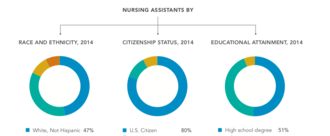
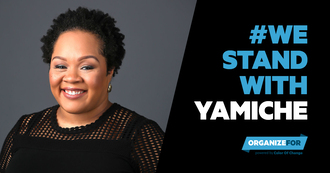
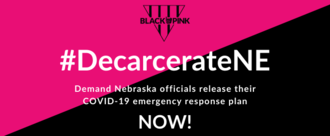.png)


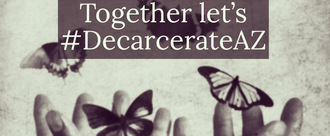
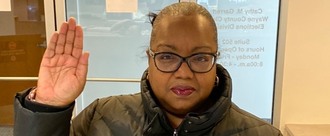

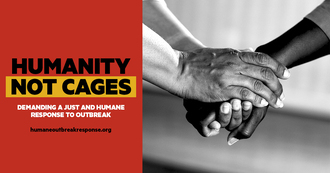
.png)
